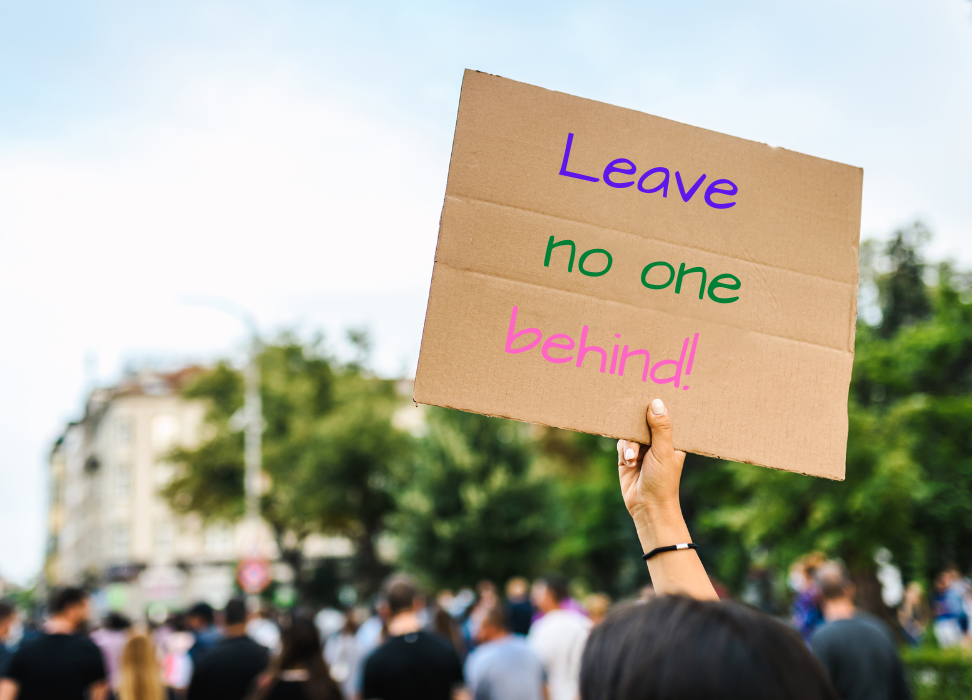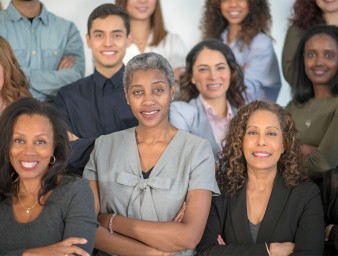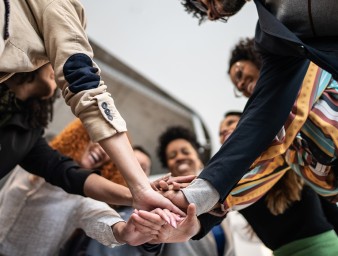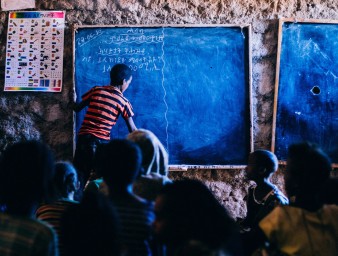Human rights provide useful guardrails for economic policies
24 August 2022

“Human rights are guardrails to help us rescue the 2030 Agenda for Sustainable Development, dismantle structural drivers of exclusion and inequality and prevent instability and conflict,” said Michelle Bachelet, UN High Commissioner for Human Rights.
UN Human Rights’ Surge Initiative and The New School’s Institute on Race, Power and Political Economy have launched, Partnership for a Human Rights Economy, to move the needle on analysis, research and economic policymaking towards achieving human rights for all without discrimination.
The Surge Initiative was established by Bachelet in response to rising inequalities, the slow-paced implementation of the Sustainable Development Goals (SDGs) and increasing social unrest. The aim of the initiative is to step up engagement at the country level on economic, social, and cultural rights (ESCRs), SDGs and prevention and strengthen the link between human rights and economics.
The new partnership will develop the conceptual foundations of a human rights enhancing economy, working across countries and with various stakeholders such as economists, governments, academics, advocacy groups, and international financial institutions.
“This collaboration can help inform economic solutions that depart from traditional approaches and add conceptual clarity for economies that place human rights and equality at their center,” Bachelet said.
Everything is at stake
The partnership will also work with all stakeholders for real implementation of these ideas and a plan to engage the public, said Darrick Hamilton, Professor and Director of The New School’s Institute on Race, Power, and Political Economy.
“
The ways in which we define economic value and our traditional measures have not captured what is first and foremost our most treasured asset in this world, which is people.
“
Darrick Hamilton, Director of The New School’s Institute on Race, Power, and Political Economy
If the world doesn’t change the status quo from “myopically focusing on growth instead of humanity,” then as the world faces the impacts of climate change and an insurgency of global conflicts and pandemics, everything is at stake, he added.
“We're faced with levels of inequality that rival the worst parts of human history,” Hamilton said. “There is a pathway we can go towards that sees even more despair and destruction. The risk is greater polarization, greater conflict, and less coordination to be able to deal with these catastrophes that clearly impact us all.”
The spirit of the Universal Declaration of Human Rights
The denial of economic and social rights is why social unrest is happening around the globe, according to Savitri Bisnath, Senior Economist for UN Human Rights’ Surge Initiative, who has been working on the partnership with The New School. The collaboration will provide a human rights-based approach to ensure that no one falls through the cracks and to forge transformative, inclusive economies, she said.
“
The partnership’s approach will ensure that we are reaching the people who are most left behind first, so that we are lifting everyone up.
“
Savitri Bisnath, Senior Economist, UN Human Rights’ Surge Initiative
“Right now, growing numbers of people are having to skip meals,” she said. “Their salaries are not going up, while inflation is going up. They can’t afford to take public transportation to go from their home to the hospital or to access healthcare.”
On the backdrop of the impacts of COVID-19, climate change, and developing countries struggling with food security due to the war in Ukraine, Bisnath added that the partnership will look at the responsibility of States under international human rights law.
“Because of the Universal Declaration of Human Rights, because of the International Covenant on Economic, Social, Cultural Rights, among others, governments are bound to anchor budgeting and other aspects of economic policy to human rights obligations and because of the 2030 agenda, the focus is on leaving no one behind,” she said.
The UDHR was created to provide freedom from want and fear, according to Todd Howland, Head of the UN Human Rights’ Development and Economic and Social Rights Branch.
“Our collaboration with the Institute is a means to recapture its spirit and letter, where human rights were to provide useful guardrails for all aspects of society – including economic policies – in all countries regardless of what economic or political system exists,” he said.
“If this partnership can provide conceptual clarity about what a human rights enhancing economy could be and its importance for gender equality and for other types of equalities, it would be a contribution,” Bisnath said.
Creating inclusive economies
Grieve Chelwa, Director of Research at The New School’s Institute on Race, Power, and Political Economy said it’s important to look at the UDHR because it focused on how to achieve the dignity of human beings.
“Economic rights were and are recognized as rights in the UDHR,” Chelwa said. “Historically recognized as an important aspect of dignity. But that has been marginalized. As an economist, you can’t have a discussion of dignity without thinking about economic rights. It’s crucial for everyone to have the resources necessary to enable them to live self-determined lives, lives of agency.”
“This partnership is the first of many in the area of a human rights enhancing economy,” Howland said. “Our vision is to substantively collaborate with stakeholders globally to move from important human rights principles to useful application for inclusive economies that enable the full enjoyment of economic, social and cultural rights.”



